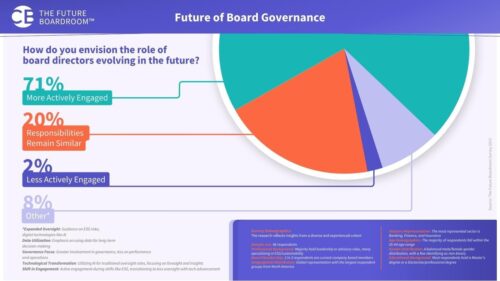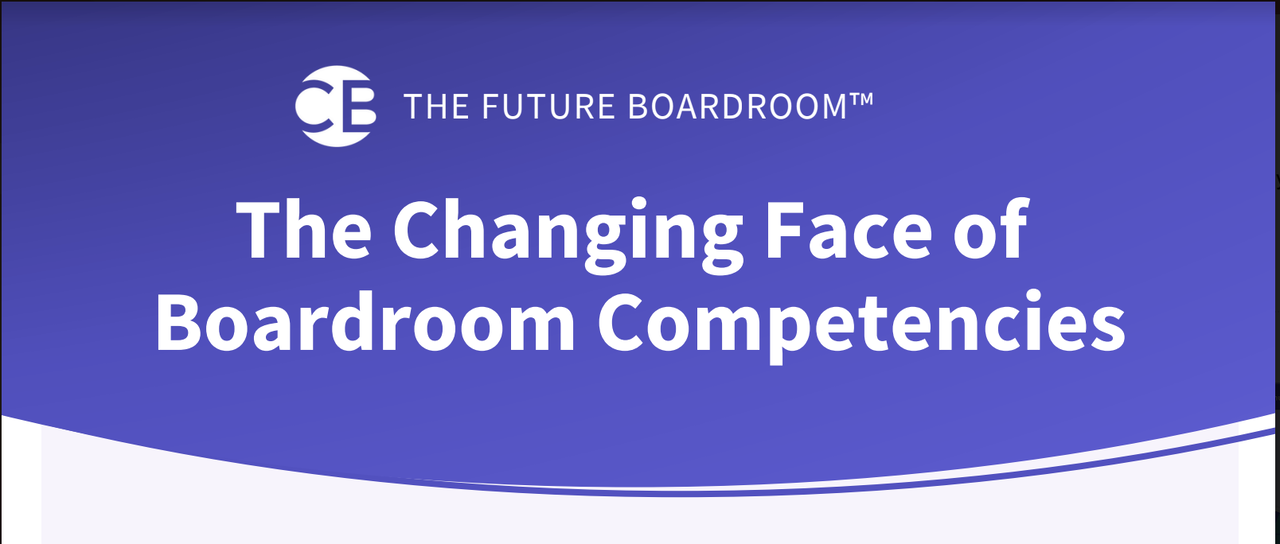
Each month at the Competent Boards Global Forum, our faculty speakers and alumni discuss top-of-mind issues for board members and business leaders. At last week’s forum, we reflected on the key findings of our recent Future Boardroom survey.
Skills for the future boardroom
Gone are the days when financial or legal expertise was enough to land a seat on a board. The contours of effective leadership are expanding. While traditional skills remain valuable, there’s a broadening need for knowledge of ESG, sustainability, digital technology and forward-thinking, values-driven leadership. Today’s ideal board member must be curious, understand the needs of modern businesses, and able to make balanced risk decisions.
Balancing old and new skills
An engaging part of our discussion centred on integrating these new skills without neglecting essential legal and financial knowledge. With the growing importance of sustainability reporting and the shifting landscape of board responsibilities, future board members need to equip themselves with both technological proficiencies and top-notch interpersonal skills. Our speakers also emphasized the need for corporate directors to understand the global geopolitical landscape, especially the complexities surrounding regulatory changes, volatile interest rates, geopolitical upheavals, and the lingering effects of the COVID-19 pandemic.
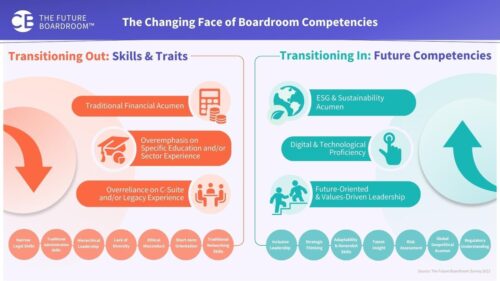
Diversity matters more than ever
We talked about the progress made in board diversity, highlighting recent developments like the push for wider gender representation in Hong Kong. But it’s clear that there’s more work to do. We need younger voices in the boardroom, too. Young people bring a fresh perspective to the pressing issues of our time, especially fast-moving progress in technology and emerging social challenges like mental health.
Thinking differently
We discussed the risk of groupthink in board member recruitment. It’s comfortable to sit around a table with people who think as we do, but that limits our perspective. We need a variety of views in our boardrooms reflecting different backgrounds, education and experience.
Some trends, such as the emergence of dedicated sustainability committees, are indeed encouraging. Yet for these shifts to take root and flourish in an organization, we must always underscore the long-term repercussions of our decisions. On the subject of sustainability, we should discuss whether a separate committee or the integration of sustainability matters into existing committees will provide the most effective oversight.
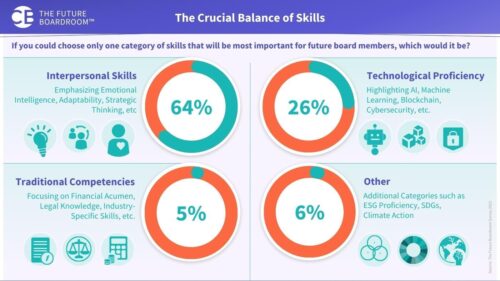
The promise and pitfalls of AI
No discussion of the future boardroom is complete without considering the looming technological giant: artificial intelligence. Our forum participants highlighted both the potential and the pitfalls of AI. Its capacity to offer data-driven insights is unparalleled. But all agree that there’s a caveat: AI can’t replace the unique elements that we humans bring to governance, like emotional intelligence and interpersonal skills. We can use AI to help us, but human judgment remains vital.
ESG: Beyond a passing fad
ESG considerations are no fleeting craze. Major investors and money managers around the world now weave ESG evaluations into traditional financial assessments. For board members, adhering to specific ESG standards, while commendable, may not capture the entire scope of their duty to an organization. The fact is that an organization’s well-being and sustainability are deeply intertwined with its broader impact on society and the environment, thereby influencing and shaping stakeholder relationships.
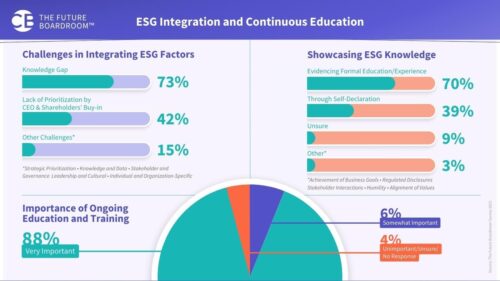
Compelling challenges
The ESG landscape, though promising, is fraught with obstacles. Our survey reveals that a staggering 73% of respondents view lack of ESG knowledge as a significant barrier, and 42% say that top-tier leaders fail to give ESG the priority it deserves. Moreover, intensifying scrutiny of the authenticity of ESG knowledge means that continuous learning and verified expertise have become essential for present and aspiring board members.
Looking forward
Our discussion left me both excited and hopeful. Challenges lie ahead, for sure, but by embracing change, prioritizing learning and adopting a future-focused mindset, boardrooms that drive positive change are well within our reach.
